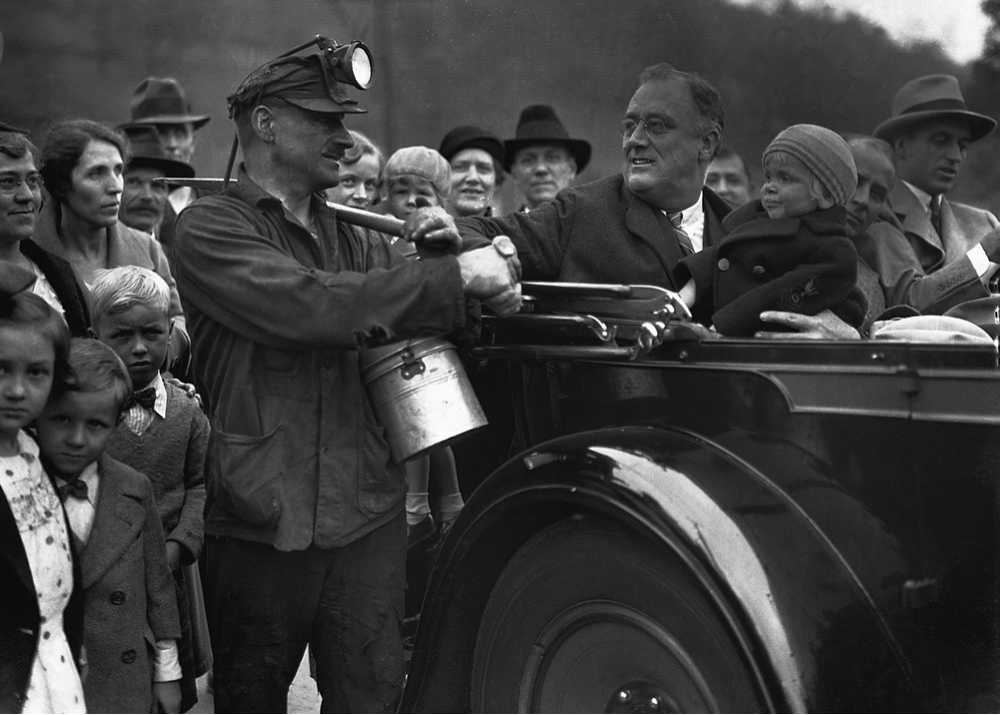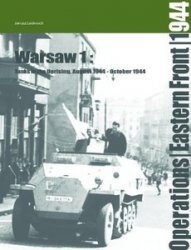How much of the credit for New Deal policies belongs personally to Franklin D. Roosevelt is debatable. He had little to do with many of the details and some of the broad principles behind the New Deal. His knowledge of economics was skimpy, his understanding of many social problems superficial, and his political philosophy distressingly vague. The British leader Anthony Eden described him as “a conjurer, skillfully juggling with balls of dynamite, whose nature he failed to understand.”
Nevertheless, every aspect of the New Deal bears the brand of Roosevelt’s remarkable personality. Rexford Tugwell left one of the best-balanced judgments of the president. “Roosevelt was not really very

A miner greets the president. Franklin's "first-class temperament” compensated for his "second-class intellect,” Justice Oliver Wendell Holmes famously observed.
Much at home with ideas,” Tugwell explained. But he was always open to new facts, and something within him “forbade inaction when there was something to be done.” Roosevelt constructed the coalition that made the program possible; his humanitarianism made it a reform movement of major significance. Although considered by many a terrible administrator because he encouraged rivalry among his subordinates, assigned different agencies overlapping responsibilities, failed to discharge many incompetents, and frequently put off making difficult decisions, he was in fact one of the most effective chief executives in the nation’s history. His seemingly haphazard practice of dividing authority among competing administrators unleashed the energies and sparked the imaginations of his aides.
Like Andrew Jackson, Roosevelt maximized his role as leader of all the people. His informal biweekly press conferences kept the public in touch with developments and himself in tune with popular thinking. His “fireside chats” convinced millions that he was personally interested in each citizen’s life and welfare, as in a way he was. At a time when the size and complexity of the government made it impossible for any one person to direct the nation’s destiny, Roosevelt managed the minor miracle of personifying that government to 130 million people. Under Hoover, a single clerk was able to handle the routine mail that flowed into the office of the president from ordinary citizens. Under Roosevelt, the task required a staff of fifty.
While the New Deal was still evolving, contemporaries recognized Roosevelt’s right to a place beside Washington, Jefferson, and Lincoln among the great presidents. Yet as his second term drew toward its close, some of his most important work still lay in the future.




 World History
World History









